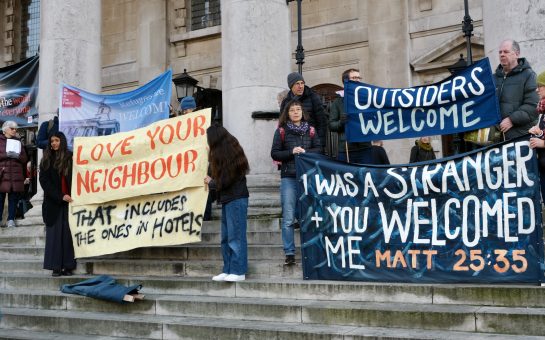The number of prosecutions, warnings and penalty fares given for fare evasions on the London Overground is substantially more than pre-Covid levels.
Transport for London (TfL)’s data shows the London Overground has seen a striking increase in enforcement activity, despite the number of journeys being below 2019 levels.
While prosecutions were relatively low during the pandemic, dropping as low as 134 in 2021/22, they surged to 2,913 in 2022/23 and reached a record high of 4,511 in 2023/24.
Warnings and penalty fares followed a similar upward trajectory, with 887 warnings and 10,341 penalty fares issued last year.
TfL said: “We take fare evasion extremely seriously and our team of 450 revenue inspectors operate across our network day and night, using new technology and intelligence to identify anyone travelling without a ticket.”
This compares to data from the Office of Rail and Road which shows that the number of journeys on the London Overground was at 186 million in pre-Covid 2019/20, compared to 181 million in 2023/24.
The current reporting period for 2024/25 has already seen 1,206 prosecutions, 250 warnings, and 6,192 penalty fares by mid-September.
This indicates a continued focus on tackling fare evasion, with the Overground now seeing enforcement levels surpassing even the pre-pandemic years.
A London Overground user, who was fined £50, said: “I have been fined and am appealing.
“I was unaware of these handheld readers and was asked for a ticket, at no point was I asked if I tapped in or out on my phone and so was given a fine.
“They make money on it, and they happily took my £50.”
An underground user, who was fined £40 after going to Tottenham Court Road this year, added that TfL could better highlight the risks of getting fined for not tapping in and out by using more infographics, ad campaigns and information more widely available online.
The number of fare evasion prosecutions on the London Underground has seen significant variation in recent years with 4,919 prosecutions being carried out in 2018/19, alongside 153 warnings and 24,407 penalty fares.
However, by 2020/21, during the height of the COVID-19 pandemic, prosecutions plummeted to just 874, with warnings steady at 155 and penalty fares dropping dramatically to only 70.
This trend can likely be attributed to reduced ridership and fewer enforcement efforts during lockdowns.
However, as restrictions eased, fare evasion enforcement began to rebound and by 2022/23, prosecutions rose sharply to 3,243, warnings increased to 574, and penalty fares climbed to 10,210.
The most recent figures for 2024/25 (up to mid-September 2024) show 1,301 prosecutions, 420 warnings, and 5,900 penalty fares issued, indicating sustained efforts to curb fare evasion.
The pandemic years of 2020/21 and 2021/22 showed a dramatic decline in fare evasion enforcement across both networks.
Reduced ridership, social distancing, and fewer revenue inspectors on-site all contributed to this dip.
However, since 2022, TfL’s enforcement activities have ramped up significantly, with both prosecutions and penalty fares increasing sharply.
Another trend is the rise in warnings issued and for the Underground, warnings have steadily grown from 153 in 2018/19 to 948 in 2023/24, with the Overground showing a similar increase.
This shift suggests TfL’s inspectors are using warnings as a more frequent tool to deter fare evasion in cases where prosecution may not be warranted.
TfL added that fare evaders are often intimidating or abusive to their colleagues and customers and they believe that the harm they cause is much greater than simply the missed cost of a ticket.
Someone who works at the train barriers of Twickenham train station said: “We see a lot of people running through the barriers all the time, especially younger people.
“We aren’t allowed to physically stop them, but we do tell them to go back through and pay. Most of the time they don’t listen anyway and run through.”
The penalty fare, currently set at £80, reduced to £40 if paid within 21 days, is a critical tool for addressing fare evasion.
TfL clarified that penalty fare notices are issued in lieu of prosecution when the offender is not deemed to have deliberately avoided paying the fare.
While TfL has ramped up its efforts, challenges remain and fare evasion not only impacts revenue but can also create safety concerns for staff and passengers.
TfL said: “We have a multi-pronged strategy in place to reduce the risk of fare evasion and have set a target to bring the level of fare evasion below 1.5%. Fare evasion is a criminal offence that could lead to a fine of up to £1,000.”
As enforcement activities recover post-pandemic, TfL’s data suggests a growing focus on deterring fare evasion and recouping lost revenue.
The sharp rise in warnings and penalty fares indicates a shift towards education and deterrence, while prosecutions remain a key part of their strategy.
With fare evasion accounting for a significant loss of revenue and creating broader social impacts, TfL stated that they continue to invest in technology and intelligence to identify offenders.





